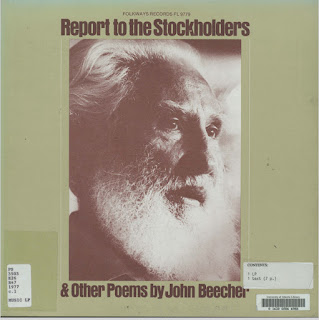Reacting in 1972 to an article called "My Parents Are My Friends," Aurelia Plath judged it "excellent and was my aim in life because my mother was my best friend!" Aurelia and her parents shared a house for 40 of Aurelia's first 50 years, so warm feelings or feigning them was required, but being friendly with parents is one thing and "best friend"-level intimacy with one's mother is another.
Sylvia wrote that her mother was "always a child" while her grandmother lived, but let's take Aurelia's word that Aurelia and her mother were each other's best friends. For exploring what mother-daughter "best friends" meant in the Plaths' house, we have what Aurelia wrote in 1982:
Maybe parent-child friendship was once an ideal, but today it's widely agreed that children feel emotionally burdened when their parents try to be friends and confidants. Thank goodness Millennial parents know better:
The emotional burden of "best friendship" with parents usually falls on daughters. Did "friend for life, such as I was for my mother" oblige the daughter to fulfill the mother's needs?
Sylvia's letters home are "intimate correspondence" as Aurelia said, and they read like best-friend letters, but Sylvia was not into fulfilling Aurelia's needs. Aurelia fulfilled Sylvia's needs and hid or downplayed her own. She liked keeping Sylvia close, but didn't depend on Sylvia for best-friendship because Aurelia had her own good friends who valued and helped her.
Aurelia had friends from her decades-ago college days and high-school teaching days. A friend from the 1920s, a novelist, in 1969 wrote her editor about Aurelia's idea to publish Sylvia's letters as a book. When the time was ripe, it happened! Friends in 1953 had hosted Aurelia for two weeks and six weeks, and in the 1970s, hosted her five days a week for three years while Aurelia taught at Cape Cod Community College. Sylvia's juvenile diaries mention Aurelia slipping out of the house to visit her neighbors the Ortons, and Aurelia frequently visited Bill and Mildred Norton, her intellectual equals and, for her first ten years in the suburbs, her best friends. It was the Nortons who had encouraged her to move to Wellesley.
As friends and family members, including Sylvia, died, moved away, or distanced themselves -- the family saw close-up Aurelia's faults and critical side -- new people such as playwright Rose Leiman Goldemberg even wanted to be Aurelia's friend. Goldemberg was concerned that it might be asking too much. Others weren't so concerned and pretended friendship, love, and goodwill to get closer to the late great Sylvia Plath.
Pretending she did not know some pen friends were opportunists, Aurelia feigned affection as long as both parties could keep it up. To us this seems strange and unnecessary. To women of Aurelia's time, it was only polite.
Bereft of old friends and increasingly injured as Sylvia's meaner words about her were published, aging Aurelia hungered for love and friendship. Her move into senior housing in 1984 separated her from neighbors who esteemed her and set her among people unfriendly because of what Sylvia had written. She had counted on family to love her as she had loved them. Only daughter-in-law Margaret Wetzel Plath regularly wrote Aurelia, and arranged for her an 80th birthday party. She made Aurelia feel loved, and according to Aurelia's last good friend, Dr. Richard Larschan, Aurelia was desolate when Margaret died of cancer in her fifties.
Sylvia was not around to be Aurelia's best and lifelong friend.












